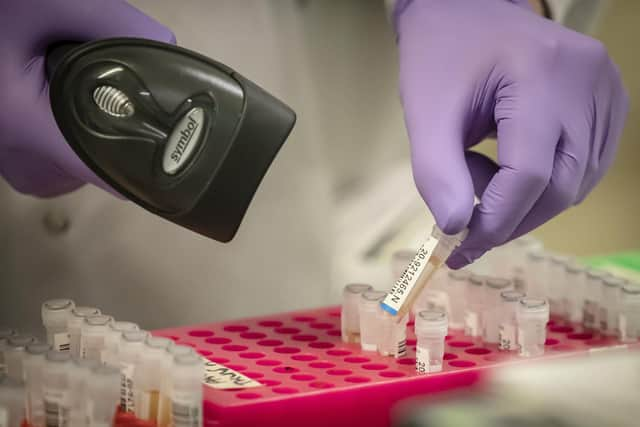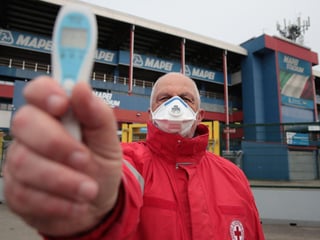Coronavirus: Areas with highest number of Covid-19 cases in UK
and live on Freeview channel 276
In the UK a total of 798 people have been diagnosed with the virus as of 9am on Friday.
This includes 15 people in Hampshire.
Ten people have died after being diagnosed with coronavirus in the UK.


Advertisement
Hide AdAdvertisement
Hide AdHealth Minister Nadine Dorries has become the first MP to be diagnosed with Covid-19.
The Conservative MP said she has been self-isolating at home after testing positive, and her parliamentary office has closed following advice from Public Health England.
Where has been worst affected by corovavirus?
Here are the local authorities across the country with the most cases (latest figures released 9am on Thursday March 12):
- Kensington and Chelsea – 19
- Hertfordshire – 18
- Oxfordshire – 17
- Hampshire – 15
- Devon – 13
- Surrey – 13
- Westminster – 12
- Camden – 11
- Southwark – 11
- Barnet – 9
- Kent – 9
- Brighton and Hove – 8
- Liverpool – 8
Coronavirus: the facts
What is coronavirus?
Advertisement
Hide AdAdvertisement
Hide AdCOVID-19 is a respiratory illness that can affect lungs and airways. It is caused by a virus called coronavirus.
What caused coronavirus?
The outbreak started in Wuhan in China in December 2019 and it is thought that the virus, like others of its kind, has come from animals.
How is it spread?
As this is such a new illness, experts still aren’t sure how it is spread. But.similar viruses are spread in cough droplets. Therefore covering your nose and mouth when sneezing and coughing, and disposing of used tissues straight away is advised. Viruses like coronavirus cannot live outside the body for very long.
What are the symptoms?
Advertisement
Hide AdAdvertisement
Hide AdThe NHS states that the symptoms are: a dry cough, high temperature and shortness of breath - but these symptoms do not necessarily mean you have the illness. Look out for flu-like symptoms, such as aches and pains, nasal congestion, runny nose and a sore throat. It’s important to remember that some people may become infected but won’t develop any symptoms or feel unwell.
What precautions can be taken?
Washing your hands with soap and water thoroughly. The NHS also advises to cover your mouth and nose with a tissue or your sleeve (not your hands) when you cough or sneeze; put used tissues in the bin immediately and try to avoid close contact with people who are unwell. Also avoiding touching eyes, nose and mouth unless your hands are clean.
Should I avoid public places?
Advertisement
Hide AdAdvertisement
Hide AdMost people who feel well can continue to go to work, school and public places and should only stay at home and self isolate if advised by a medical professional or the coronavirus service.
What should I do if I feel unwell?
Don’t go to your GP but instead call NHS 111 or look online at the coronavirus service that can tell you if you need medical help and what to do next.
When to call NHS 111
NHS 111 should be used if you feel unwell with coronavirus symptoms, have been in a country with a high risk of coronavirus in the last 14 days or if you have been in close contact with someone with the virus.
Sources: World Health Organisation and NHS
Comment Guidelines
National World encourages reader discussion on our stories. User feedback, insights and back-and-forth exchanges add a rich layer of context to reporting. Please review our Community Guidelines before commenting.
